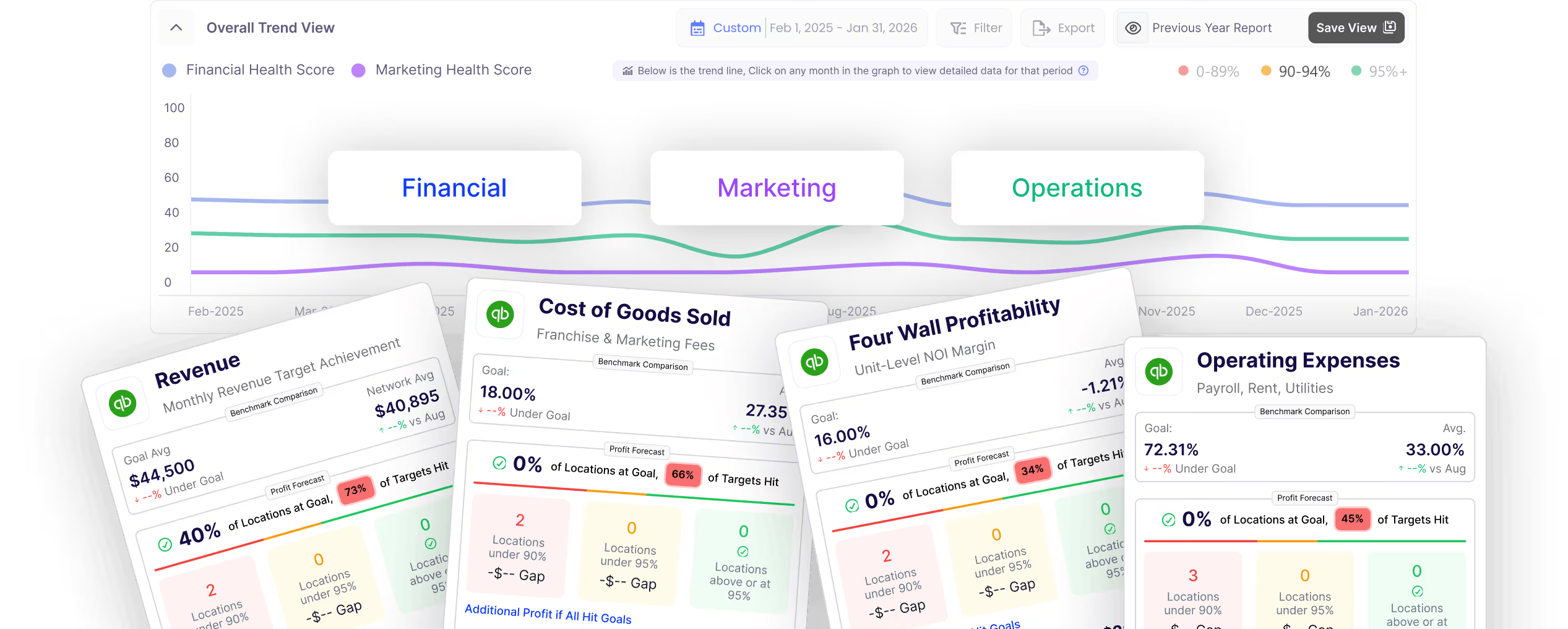
Back To All Blogs
The Strategic Advantage of Financial Process Automation
.jpg)
In the rapidly evolving financial industry, Financial Process Automation (FPA) emerges as a strategic imperative, revolutionizing operations from transaction processing to compliance management.

In the fast-paced and dynamic landscape of the financial industry, staying ahead of the curve is crucial for success. One key strategy that our team member has gained significant traction in recent years is Financial Process Automation (FPA). This transformative technology, encompassing automated financial systems, services,business decisions, and reporting, is revolutionizing the way financial institutions operate. In this blog post, we will explore the strategic advantages of financial process automation and how it is reshaping the future of financial services.
Enhancing Operational Efficiency
Financial process automation streamlines routine and time-consuming tasks to reduced errors, reducing the reliance on manual labor. Automated financial systems can handle repetitive processes such as data entry, transaction processing, and reconciliation with precision and speed. This not only minimizes the risk of errors but also frees up valuable human resources to focus on more strategic and value-added activities.
Real-time Decision-Making
In the fast-paced world of finance departments, timely decision-making is paramount. Financial automation provides real-time insights into critical data, enabling stakeholders to make informed decisions promptly. Automated financial services leverage advanced algorithms to analyze vast amounts of data rapidly, giving organizations a competitive edge in responding to market changes and making strategic decisions.
Understanding Financial Reporting Automation
Financial reporting automation involves the use of software and technology to streamline and expedite the process of compiling, analyzing, and presenting financial data. This automation is designed to reduce manual efforts, mitigate errors, and ensure compliance with regulatory standards. It encompasses a range of tasks, including data collection, consolidation, analysis, and the generation of financial reports.

Automating Financial Reporting Processes
Data Collection
Automated financial systems can seamlessly collect data from various sources and manual tasks, such as accounting software, spreadsheets, and databases. This eliminates the need for manual data entry and reduces the risk of errors associated with it.
Data Consolidation
Financial reporting automation tools can consolidate data from different departments, branches, or subsidiaries, providing a comprehensive view of the organization's financial health and business processes. This consolidation is performed swiftly and accurately, enhancing decision-making processes.
Data Analysis
The analysis of complicated data is made possible by complex algorithms and machine learning capabilities integrated into automated systems. By using these technologies, financial analysts can obtain insightful knowledge about trends, anomalies, and possible hazards, which will help them make better decisions.
Report Generation
Automated financial reporting systems can generate a variety of reports, from standard financial statements to custom reports tailored to specific business needs. This not only saves time but also ensures consistency and accuracy in reporting.
Careers in Robotic Process Automation
Robotic Process Automation is an innovative trend that is redefining old processes and opening the door to increased accuracy and efficiency in the constantly changing financial services industry. Along with streamlining operations, this automation wave has opened up new employment opportunities in automated financial systems.
Robotic Process Automation in Financial Services:
Robotic Process Automation (RPA) involves deploying software robots or "bots" to perform repetitive, rule-based tasks within existing systems. Automation solutions the context of financial services, RPA is revolutionizing operations by automating processes that were once time-consuming and prone to human error.
Transaction Processing
RPA is adept at handling routine transactional processes, such as data entry, reconciliation, automates data and validation. This ensures a higher level of accuracy and speed, freeing up human resources for more complex and strategic tasks.
Account Reconciliation
Bots can play a crucial role in automating account reconciliation processes, comparing financial records across various platforms and identifying discrepancies. This not only reduces the risk of errors but also accelerates the reconciliation cycle.

Compliance and Reporting
Regulatory compliance is a critical aspect of financial services. RPA can be programmed to ensure that all transactions and activities adhere to the necessary regulations, automating the generation of compliance reports.
Automated financial systems careers
The integration of Robotic Process Automation in financial services has given rise to a spectrum of career opportunities. Here are some key roles within this domain:
RPA Developers
Professionals with programming skills are in high demand to design, develop, and implement RPA solutions tailored to the specific needs of financial institutions.
Process Analysts
Individuals who can analyze existing processes and identify opportunities for automation play a crucial role. Process analysts collaborate with RPA developers to optimize workflows and enhance operational efficiency.
RPA Architects
Architects in the RPA space design the overall structure of automated systems. They strategize how different processes will integrate with RPA solutions, ensuring a cohesive and effective automation strategy.
Benefits of Financial Reporting Automation
Time Efficiency
Automation significantly reduces the time required for financial reporting tasks, allowing finance professionals to focus on strategic activities rather than manual data processing.
Accuracy and Compliance
Automation minimizes the risk of human errors in financial reporting, ensuring greater accuracy. It also helps organizations adhere to regulatory standards and compliance requirements.
Cost Savings
By eliminating manual data entry and reducing the need for extensive manpower in the reporting process, financial reporting automation contributes to cost savings for organizations.
Real-time Reporting
Automated systems enable real-time reporting, providing stakeholders with up-to-date and relevant financial information for better decision-making.

Careers in Automated Financial Systems
As the financial industry embraces automation, the demand for skilled professionals in the field of automated financial systems is on the rise. Here are some key career paths within this domain:
Financial Analysts
Financial analysts play a crucial role in leveraging automated tools to analyze data, interpret trends, and provide insights for strategic decision-making.
Data Analysts
Professionals specializing in data analysis are in high demand to interpret and derive meaningful conclusions from the vast amounts of financial data processed by automated systems.
System Implementers and Administrators
Experts who can implement and manage financial reporting automation systems are essential. They ensure the seamless integration of these systems with existing infrastructure.
Compliance Officers
With the increasing emphasis on regulatory compliance, there is a growing need for professionals who can ensure that automated financial systems align with legal and industry standards.
Software Developers
Those with programming and development skills are crucial for creating and improving the functionality of financial reporting automation software.
Risk Mitigation and Compliance
Compliance with regulations is a top priority for financial institutions. Automating financial processes ensures adherence to industry standards and regulatory requirements. Robotic process automation (RPA) in financial services can systematically track and audit transactions, reducing the risk of non-compliance. This not only safeguards the institution from potential legal repercussions but also builds trust among clients and stakeholders.
Seamless Financial Reporting
The automation of financial reporting is a game-changer for organizations aiming for accuracy, consistency, and efficiency in their reporting processes. Automate financial reporting tools can compile and analyze vast datasets, generate reports, and ensure compliance with reporting standards. This not only reduces the time and effort required for reporting but also minimizes the likelihood of errors associated with manual data entry.
Cost Savings
Implementing financial process automation leads to significant cost savings over time. By reducing manual intervention, organizations can lower operational costs, minimize errors, and optimize resource allocation. Automated financial services enable institutions to do more with fewer resources, creating a leaner and more cost-effective operational model.
Improved Customer Experience
The benefits of financial process automation extend beyond the internal operations of financial institutions; they positively impact customer experience. Automated services enable quicker and more accurate processing of customer requests, leading to faster transaction times and improved service delivery. This, in turn, enhances customer satisfaction and loyalty.
Adaptability to Market Changes
The financial landscape is constantly evolving, with market trends, customer preferences, and regulatory requirements changing rapidly. Financial process automation provides the agility needed to adapt to these changes seamlessly. Automated systems can be easily configured to accommodate new regulations, market demands, and technological advancements, ensuring that organizations remain at the forefront of industry developments.

Enhanced Data Security
With the increasing frequency and sophistication of cyber threats, data security is a paramount concern for financial institutions. Automated financial systems are designed with robust security features, including encryption, access controls, and audit trails. By minimizing human intervention in sensitive processes, automation reduces the risk of data breaches and unauthorized access, safeguarding the confidentiality and integrity of financial data.
Conclusion
Financial process automation is not just a technological upgrade; it is a strategic imperative for financial institutions looking to thrive in an increasingly competitive and complex environment. From improving operational efficiency to enhancing customer experience, the advantages of financial automation are diverse and impactful.
As the financial industry continues to embrace digital transformation, those who harness the power of automation will undoubtedly gain a strategic advantage, positioning themselves as leaders in the evolving landscape of financial services.Sign up for a free trial today and embark on a journey towards a more efficient, customer-centric, and strategically advantaged future in finance.

Ready to Find Your
Profit Leaks?











